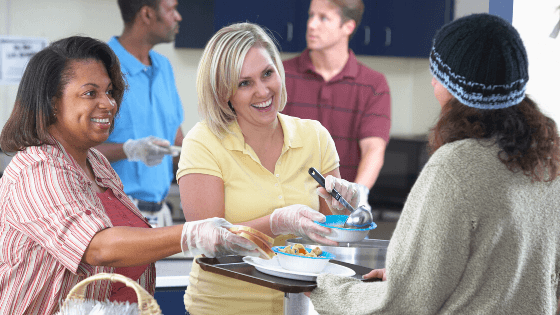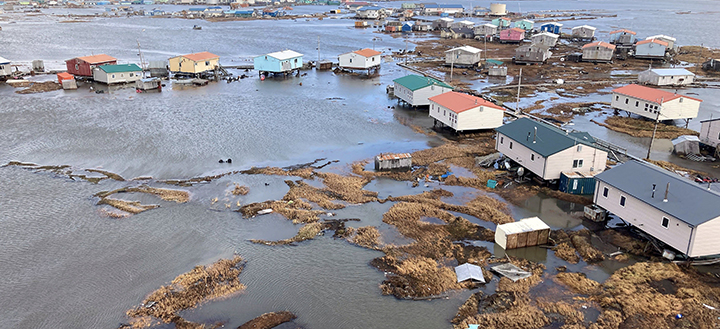The most current version of FEMA Policy* makes the following additional revisions to align with the changes made by the Bipartisan Budget Act of 2018:
- Changes the terms “essential governmental services” and “essential governmental-type services” to “essential social services” and “essential social-type services.”
- Changes the terms “essential governmental services” and “essential governmental-type services” to “essential social services” and “essential social-type services.”
- Adds houses of worship as eligible private nonprofit facilities, distinct from community centers.
- Clarifies that houses of worship cannot be deemed ineligible because leadership or membership in the organization operating the house of worship is limited to persons who share a religious faith or practice.
- Removes the exclusion of buildings and items used primarily for religious purposes or instruction from the definition of eligible private nonprofit educational facilities and makes clear that such facilities are eligible regardless of their religious character or use for religious instruction.
Prior to these changes, houses of worship were not considered eligible facilities under FEMA’s Public Assistance program.
Private Nonprofit Eligibility Requirements
Only certain PNPs are eligible Applicants. To be an eligible PNP Applicant, the PNP must show that it has:
- A current ruling letter from the U.S. Internal Revenue Service granting tax exemption; or
- A current ruling letter from the U.S. Internal Revenue Service granting tax exemption; or
- Documentation from the State substantiating it is a non-revenue producing, nonprofit entity organized or doing business under State law.
Additionally, prior to determining whether the PNP is eligible, FEMA must first determine whether the PNP owns or operates an eligible facility. For PNPs, an eligible facility is one that provides an eligible service as follows:
- A facility that provides a critical service
- A facility that provides a critical service (without regard to religion) which is defined as education, utility, emergency, or medical; or
- A facility that provides a non-critical, but essential social service AND provides those services to the general public.
PNP Eligible Non-Critical, Essential Social Type Services Including Religious
Community centers established and primarily used for the purpose of offering the following services (or similar) to the community at large:
- Art services authorized by a State, Territorial, Tribal, or local government
- Educational enrichment activities that are not vocational, academic, or professional training
- Multi-purpose arts programming
- Senior citizen projects, rehabilitation programs, community clean-up projects, blood drives, local government meetings, and similar activities
- Services and activities intended to serve a specific group of individuals (e.g., women, African Americans, or teenagers) provided the facility is otherwise available to the public on a non-discriminatory basis
- Social activities to pursue items of mutual interest or concern
- Youth and senior citizen group meetings
- Activities of community centers that serve the general public
Facilities that do not provide medical care, but do provide:
- Alcohol and drug treatment
- Assisted living
- Custodial care, even if the facility is not open to the general public
- Rehabilitation
- Child care
- Day care for individuals with disabilities or access and functional needs
- Food assistance programs
- Health and safety services
- Homeless shelters
- Houses of worship
- Libraries
- Museums
- Low-income housing (as defined by Federal, State, Territorial, Tribal, or local law or regulation)
- Residential and other services for battered spouses
- Residential services for individuals with disabilities
- Senior citizen centers
- Performing arts centers with a primary purpose of producing, facilitating, or presenting live performances
PNPs that provide critical services can apply to FEMA without having to apply to SBA. If the eligible portion of a mixed-use facility provides critical services (or is partially used to provide critical services), the Applicant may apply for PA funding without also applying to SBA for a loan. If the eligible portion of a mixed-use facility is used to provide services that are entirely non-critical, the Applicant must also apply to SBA for a loan.
For PNPs that provide non critical, essential social services, FEMA only provides PA funding for eligible Permanent Work costs that an SBA loan will not cover. Th erefore, non-critical PNPs must also apply for a disaster loan from the SBA. PNPs who off er essential social services can apply directly to FEMA for debris removal and emergency protective measures.
For more than three decades, Tidal Basin professionals have assisted hundreds of public and private clients to recover from some of the world’s worst disasters. Our unmatched experience and hands-on expertise with FEMA programs, insurance and the insurance claim process, and other key grant resources make us an invaluable addition to any emergency response and recovery team. We are your trusted advocates, working only for you to help expedite and maximize your financial recovery. Tidal Basin stands ready to assist you with your recovery.
*FEMA Public Assistance Program Policy Guide (FP 104-009- 2, January 2018)
Download “Snapshot on Recovery: Faith-Based/Private Non-Profts”
Pleasecontact usfor additional information and guidance.



